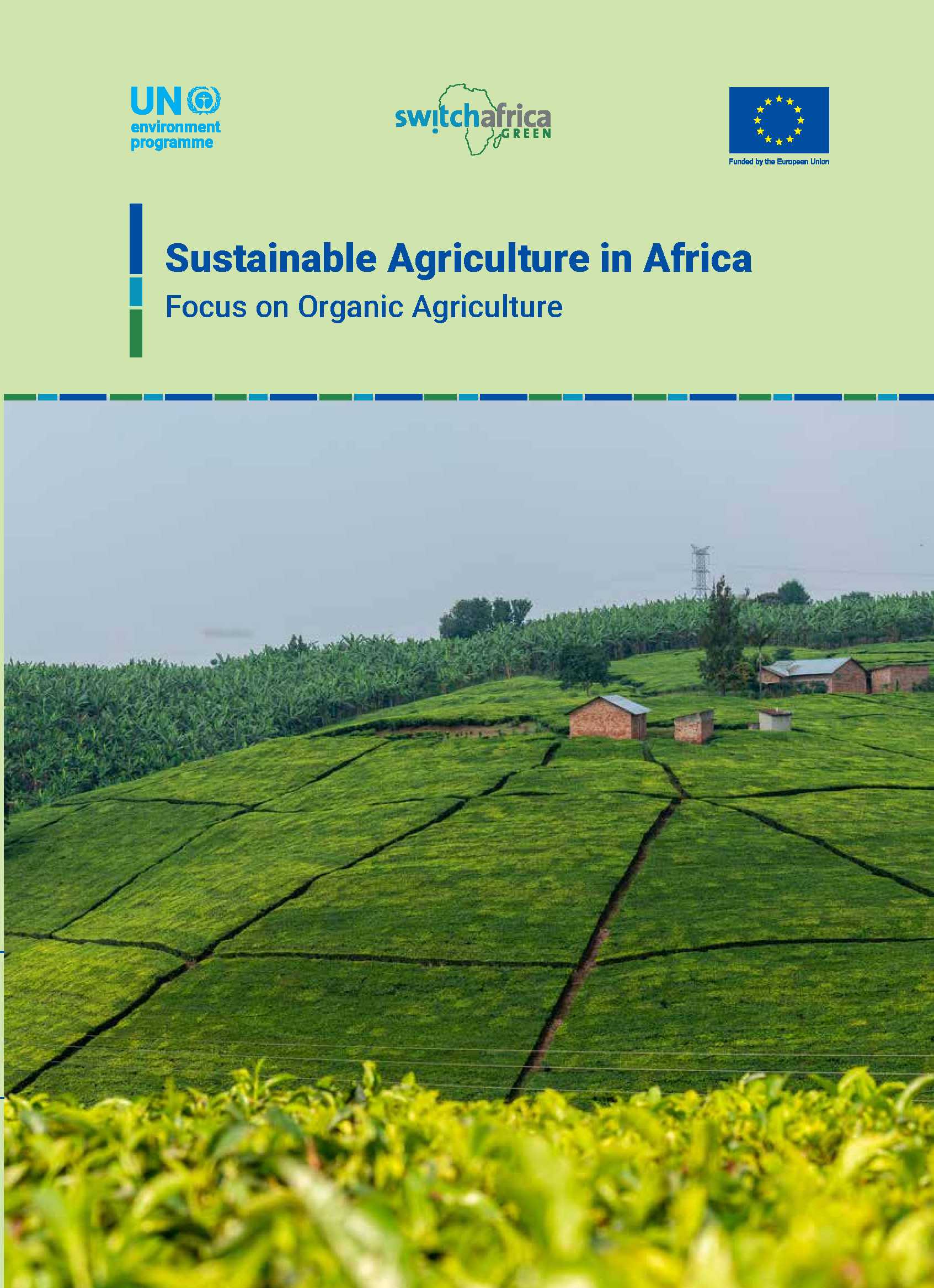This sector report presents an analysis of the implementation and results of the SWITCH Africa Green programme in the agriculture sector focusing on the participating countries Burkina Faso, Ghana, Kenya, Mauritius, South Africa and Uganda. It covers the strategic interventions on sustainable agriculture such as: organic farming; weed and pest control and management; organic disease control and management; pre- and post-harvest management; composting; use of waste for mulching, and/or fuel; permaculture; certification; standards; market requirements; rangeland management; and animal nutrition and health.
The strategic interventions in capacity building and awareness creation have had a positive impact on staff capacity, business skills, and enterprise performance. Sixty-two per cent of the surveyed enterprises reported that they had acquired new skills in areas such as organic farming; weed and pest control and management; organic disease control and management; pre-harvest, harvesting, and post-harvest management; permaculture; certification; standards; market requirements; rangeland management; and animal nutrition and health. Sixty-one per cent of the surveyed MSMEs recorded increased sales turnover as a direct result of the SWITCH Africa Green programme. Additionally, the implementation of SCP principles in the agriculture sector generated new business opportunities. Slightly more than half of the surveyed enterprises reported new opportunities arising through business expansion and new products. The new products and opportunities include organic fertilizer, diversification into horticulture and livestock, agro-tourism, inter-cropping, and introduction of new breeds. On the social dimension of development, positive gains have been reported in terms of job creation, economic activity, and social cohesion as reported by the surveyed enterprises. Fortyeight per cent of the enterprises reported that new jobs had been created during the period of the implementation of the SWITCH Africa Green programme. A total of 9,983 new jobs were created, of which some are seasonal and dependent on family labour.
The environmental benefits are anchored on improved resource efficiency and conservation including energy-use efficiency, water-use efficiency, and waste reduction practices. Fifty-five per cent of the enterprises implemented water-efficiency interventions such as reuse, rainwater harvesting, water conservation, and installation of water-saving devices. Thirty-nine per cent of the surveyed enterprises depend on rain-fed agriculture, thus underscoring the need for wateruse efficiency and conservation. Fifty-seven per cent of the enterprises implemented waste reduction measures including composting, use of waste for mulching, and use of waste as fuel.
The report is informed by a SWITCH Africa Green programme survey carried out in May 2018, grantee reports, case studies, peer reviews and regional stakeholder consultations including a regional sector meeting held on 27-28 November 2019 in Nairobi, Kenya. The report is one of 4 sector reports, one for each of the priority sectors of the programme: agriculture, manufacturing, tourism and integrated waste management (IWM).
The SWITCH Africa Green programme is EU funded to support governments and the private sector in African countries (Burkina Faso, Ghana, Kenya, Mauritius, South Africa, and Uganda) in the transition to an inclusive green economy (IGE). The programme is implemented by the United Nations Environment Program (UNEP) in collaboration with the United Nations Development Program (UNDP) and United Nations Office for Project Services (UNOPS).

